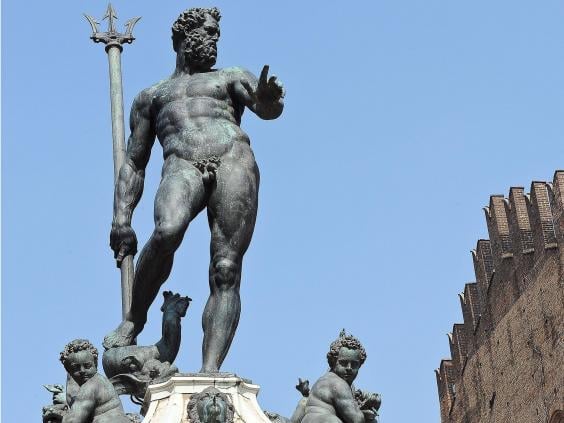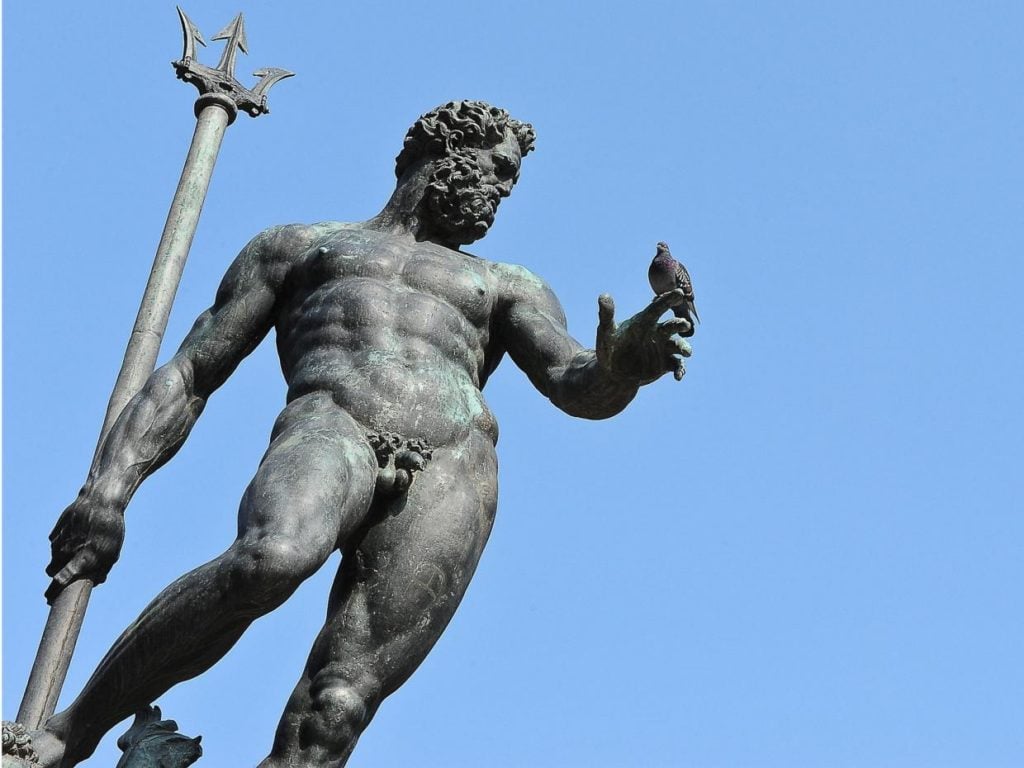Art World
Facebook Censors Photo of 500-Year-Old Nude Neptune Statue in Italy
Does the Roman god need to be dressed?

Does the Roman god need to be dressed?

Sarah Cascone

A giant bronze statue of the sea god Neptune has loomed above the Piazza del Nettuno in Bologna, Italy, for nearly five centuries, but that didn’t stop Facebook from censoring a photograph of the nude sculpture by Giambologna in late December. Local writer Elisa Barbari used the historic artwork on her Facebook page.
“The use of the image was not approved because it violates Facebook’s guidelines on advertising,” said the social media giant, according to Barbari, who posted about the controversy on her page on January 1. “It presents an image with content that is explicitly sexual and which shows to an excessive degree the body, concentrating unnecessarily on body parts. The use of images or video of nude bodies or plunging necklines is not allowed, even if the use is for artistic or educational reasons.”
“Back in the 1950s” wrote Barbari on Facebook, “during celebrations for school children graduating, they used to cover up Neptune. Maybe Facebook would prefer the statue to be dressed again.”

The statue of Neptune in the Piazza del Nettuno in Bologna, Italy. Courtesy of Andreas Solaro/AFP/Getty Images.
Facebook has since reversed its stance on Neptune. “Our team processes millions of advertising images each week, and in some instances we incorrectly prohibit ads,” said the company in a statement, according to the Guardian.
The social media network went on to acknowledge the historic importance of the statue, saying, “This image does not violate our ad policies. We apologize for the error and have let the advertiser know we are approving their ad.”
This isn’t the first time that the issue of art and censorship has reared its head on the social media network. For instance, there was a media uproar in September 2016 when Facebook censored the iconic Vietnam War-era photograph of the “napalm girl,” Nick Ut’s iconic image of a naked child, Kim Phuc, fleeing from armed soldiers.
After initially insisting that “it’s difficult to create a distinction between allowing a photograph of a nude child in one instance and not others,” Facebook ultimately ruled that the image did not, in fact, violate its Community Standards, according to the Independent.
“We recognize the history and global importance of this image in documenting a particular moment in time,” Facebook explained in a statement. “Because of its status as an iconic image of historical importance, the value of permitting sharing outweighs the value of protecting the community by removal.”
Other censorship incidents have cropped up on Facebook over Copenhagen’s famed The Little Mermaid statue, and Gustave Courbet’s sexually-explicit 1866 painting L’Origine du Monde, and on Instagram with a photo of an artist with her period and of an illustration of a topless woman.